New research by the Royal Aeronautical Society (RAeS) into public attitudes on decarbonising aviation reveals that most respondents are concerned about the impacts of climate change, and 58% believe air transport causes more damaging emissions than road, rail or sea modes, but only 38% would pay more for their flights to help remediate flight carbon emissions. The survey, conducted for the RAeS by Ipsos UK, asked more than 2,000 UK respondents aged 16-75 years a range of questions concerning air transport’s impact on climate damage and measures to remediate environmental damage, to help sharpen future communication around options for cleaner flight. The research coincided with growing concerns about aviation meeting its steep decarbonisation targets amidst increasing doubts within the sector and funding challenges for many new fuel and aircraft developers.
“Multiple net zero roadmaps have been created by different organisations,” notes the Executive Summary to the RAeS ‘Public attitudes to the decarbonisation of aviation’ report, “which while having some differences in both assumptions and conclusions, all share a common understanding of the overall actions which will need to be taken for Net Zero 2050 to become a reality.
“Some of these actions, such as the use of sustainable aviation fuel, will not be overtly visible to the flying public but are likely to make themselves known through higher costs or impacts on availability of fuel feedstocks or energy for non-aviation uses. Other actions, such as the development of advanced technologies and zero carbon aircraft are likely to be more evident to passengers.”
By polling the public, said Dr Naomi Allen, Head of Research at RAeS, the sector could more clearly gauge community understanding of decarbonising air transport and shape its messaging to explain the goals of and pathways towards a low carbon future for flying.
“This research has helped our understanding as to what the public thinks about some of the fuels, technologies and operational measures that may be introduced in the coming decades to achieve sustainable aviation,” she said. “The insights will be invaluable in improving our understanding of what the public will deem acceptable and how to communicate our aviation net zero goals more clearly.”
Of those surveyed, said the RAeS, 75% said they were concerned about climate change and over half travelled by air at least once as year, “and therefore it is presumed that the topic is of interest to a significant proportion of the public.”
Asked the extent to which they believed air transport produced climate-impacting emissions, 58% of respondents selected “to a great extent”, appearing to view aviation as more impactful than road, rail and sea.
And when asked if they thought it would be easy or difficult to decarbonise aviation, 69% rated the task as “difficult”, appearing to believe that it would be the hardest mode to reform.
More than half (57%) said they would be willing to use another form of transport to reduce carbon emissions produced by flights, while of those who flew, around half were willing to have their comfort or convenience impacted to help reduce the flight’s emissions.
The survey indicated “more support than opposition” to a frequent flyer tax, and “overall support to a lesser degree” for higher taxes on aviation, provided those revenues were used to help decarbonise aviation. But there was “net opposition” to increasing taxes on airfares to help fund general government spending.
And just 38% of respondents were willing to pay more to cut carbon emissions from their flights.
The survey respondents “generally” considered SAF would produce fewer carbon emissions than fossil fuels but did not differentiate between the relative benefits of fuels produced from waste, plants or renewable sources such as power-to-liquid, in which carbon dioxide and green hydrogen are used to produce zero carbon liquid fuels.
Asked about the emission reductions that SAF could deliver, 43% of the survey respondents underestimated the scale, while 11% overestimated its effectiveness.
Only just over one third of respondents (36%) considered current carbon offsetting schemes used by airlines as having a positive impact on the environment, while almost half considered the continued use of fossil fuels, offset by carbon capture technologies, to be “on the acceptable end of the scale as a means of reaching Net Zero.”
“Decarbonisation is a high priority for the sector,” commented RAeS Chief Executive David Edwards, “and many of those employed in aerospace are working directly or indirectly towards this goal.
“Developing our understanding around airline passengers’ behaviour in this area will support our efforts for sustainable aviation. This report provides a benchmark of current thinking and aids future planning efforts around decarbonisation.”
Photo: London Gatwick Airport


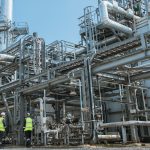
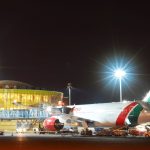
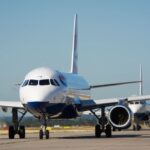
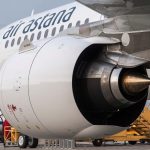

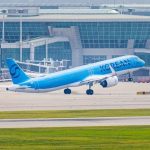



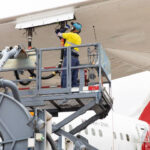



More News & Features
UK government starts new consultation on SAF revenue certainty mechanism
Catagen launches SAF production company and signs offtakes with Ryanair and Shell
Aviation needs better measurement to deliver meaningful decarbonisation
More targeted and faster measures needed to overcome barriers and unlock SAF’s full potential, finds PA study
NATS survey shows a continuing disconnect of public attitudes to the environmental impact of flying
UK government announces grant funding awards totalling £63m to 17 SAF projects